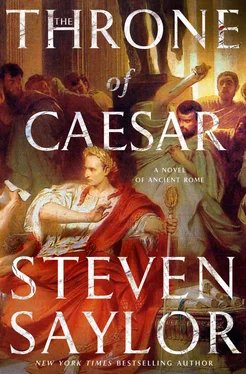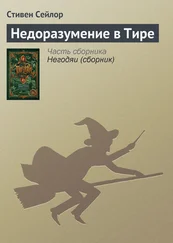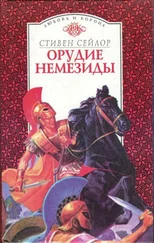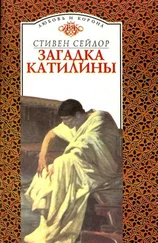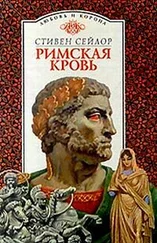Стивен Сейлор - The Throne of Caesar
Здесь есть возможность читать онлайн «Стивен Сейлор - The Throne of Caesar» весь текст электронной книги совершенно бесплатно (целиком полную версию без сокращений). В некоторых случаях можно слушать аудио, скачать через торрент в формате fb2 и присутствует краткое содержание. Год выпуска: 2018, Издательство: St. Martin's Press, Жанр: Исторический детектив, на английском языке. Описание произведения, (предисловие) а так же отзывы посетителей доступны на портале библиотеки ЛибКат.
- Название:The Throne of Caesar
- Автор:
- Издательство:St. Martin's Press
- Жанр:
- Год:2018
- ISBN:нет данных
- Рейтинг книги:5 / 5. Голосов: 1
-
Избранное:Добавить в избранное
- Отзывы:
-
Ваша оценка:
- 100
- 1
- 2
- 3
- 4
- 5
The Throne of Caesar: краткое содержание, описание и аннотация
Предлагаем к чтению аннотацию, описание, краткое содержание или предисловие (зависит от того, что написал сам автор книги «The Throne of Caesar»). Если вы не нашли необходимую информацию о книге — напишите в комментариях, мы постараемся отыскать её.
The Throne of Caesar — читать онлайн бесплатно полную книгу (весь текст) целиком
Ниже представлен текст книги, разбитый по страницам. Система сохранения места последней прочитанной страницы, позволяет с удобством читать онлайн бесплатно книгу «The Throne of Caesar», без необходимости каждый раз заново искать на чём Вы остановились. Поставьте закладку, и сможете в любой момент перейти на страницу, на которой закончили чтение.
Интервал:
Закладка:
“Curio, too, was beheaded,” Caesar said quietly. “His beautiful head, taken as a trophy by King Juba. How Fulvia wept. And so did I! Well, Juba is dead now, and Curio is well and truly avenged.” He gazed into the shadows of the garden. “I wonder, Cinna, have you ever actually seen a man beheaded? ”
Cinna looked thoughtful. “No, I think not, Caesar.”
“I ask because your descriptions of the severed heads of Orpheus and Pentheus are so vivid, and seem so keenly observed. If not from your own observation, then I wonder if perhaps you extracted some details from Gordianus during your research.”
“Me, Caesar?” I said.
“You and Cinna are drinking companions, are you not? I thought perhaps the subject had come up between you. Because you did witness the beheading of Pompey, did you not, when those accursed eunuchs slew him on that beach in Egypt?”
I nodded. “Yes, I saw it happen. But only from a great distance. I was on a ship, and the murder took place on shore.” In memory I beheld the desolate beach, the sparkling surf, the confusion in Pompey’s small boat as it came ashore, the flashing daggers, then the head of the Great One held aloft. “But I don’t think I’ve ever spoken of it to Cinna. His imagination far outstrips my faulty memory, I’m sure. Though, as I recall, there was only one eunuch involved in the murder of Pompey. ‘Accursed eunuchs,’ you said, using the plural.”
Caesar snorted. I saw the manic sparkle in his eyes. “I use the word in this instance as a derogatory term for all Egyptians.”
“That seems hardly fair,” Lepidus said mildly.
“Come, come, even Cleopatra says it! I think I picked up the habit from her. The young queen of Egypt says the most appalling things, even about her own people—and can do so in almost any language you can think of.”
Everyone laughed at this. We drank more wine.
“Yes, the beheadings are very vivid,” Caesar said thoughtfully. “The way you describe the death of each man is so wrenching, almost unbearable—I swear, reading those passages silently to myself was bad enough, but to hear them recited aloud, it was all I could do not to cover my ears. And no man has ever called me squeamish.”
“Your response to the verses has less to do with squeamishness, I think,” said Cinna, “and more to do with horror —something very different, and from which no man is immune. We can all be made to feel horror. ”
“But how do you achieve this horror, as a poet?” said Lepidus.
Cinna answered slowly, carefully choosing each word. “I tried to imagine the worst possible death, and then write about it. Surely no death could be more horrible than being torn to pieces while still alive. I had to imagine exactly what that might feel like—not just the physical pain, but also the anguish of seeing your body ripped apart. To see your hands torn off, your arms and your legs, and to know there can be no turning back, no possible recovery—no hope. Utter horror, utter hopelessness. To see oneself destroyed, to know what is happening, even while suffering unimaginable agony…” He took a sip of wine. “But do you know, once I had committed those descriptions to verse, I felt somehow relieved … unburdened … as if I had faced my worst fear, and by admitting it, describing it, dwelling on it, I had overcome it.”
“You stared down the enemy!” said Decimus with a laugh.
“If you like.”
Lepidus nodded. “Now, thanks to Cinna and his Orpheus and Pentheus, we all know what the worst death would be. But I wonder, what would be the best way to die?”
“Not so fast!” said Caesar. “I’m not sure that Cinna has described the very worst way to die. Dismemberment by Maenads would at least be relatively quick, however agonizing. I’m not even sure dismemberment would be that painful. The body seems not to feel pain after a certain point. I’ve seen more than one man pick up his sword and keep fighting after having a hand or an arm lopped off—the wounded man seems not to feel his wound at all. Nor would death by daggers necessarily be so terrible, as happened with Romulus … and with Pompey.”
“After which, each was beheaded,” noted Decimus, staring into his wine cup.
“Yes, well, the desecration of one’s corpse is a whole other question,” said Caesar. “The beheaded are said to stay that way even in Hades. But as for the worst way to die, I think it would be a long, lingering illness. To see yourself wither, to become increasingly helpless and derelict, to lose appetite, to lose control of one’s bladder and bowels, to know for a long time that the end is drawing closer and closer. ”
“King Cyrus of Persia died like that,” said Cinna. “So Xenophon tells us in the Cyropaedia. He saw his end approaching. He even planned the details of his own funeral.”
“Well, then, let me not die like Cyrus!” said Caesar. “Yes, by slow degrees would be for me the worst death. Far better to die quickly … unexpectedly…”
“Even if by violence?” asked Decimus, gazing into his wine cup. “Like Romulus? Like Pompey?”
Caesar smiled. “I was thinking of the way my father died, actually. He sat on a bench one morning, bent down to put on a shoe—and fell over, dead. A terrible shock for my mother, and for me—I was only sixteen—but I imagine he felt little or no pain, and had no anticipation of death. Or if so, only for an instant.”
“Do you fear death, Caesar?” I asked.
“Fear it? I think not. But nor do I desire it. To desire death is against nature. One hopes always to achieve more fame, more glory. To do so, one must keep living.”
“But can’t a man live long enough to satisfy nature?” I said. “Can he not achieve enough glory?”
“Perhaps,” Caesar said thoughtfully. “Yes, I think so. I have lived long enough, for nature or for glory.”
Decimus raised his eyes to meet those of Caesar. “Sudden death is best, then?”
“Undoubtedly,” said Caesar.
There was a break in the conversation, the natural silence that falls when people have had their fill of food and wine and talk. The quiet was broken only by the cracking of the fires in the braziers, a comforting sound. I heard the distant soughing of wind in treetops, and then gusts of wind in the garden, shaking the foliage, stirring dry leaves, and whistling past the statues.
“Do you smell it?” said Caesar. “The smell of approaching rain. How I love that!”
Meto laughed. “How I hate it! It makes me think of muddy campsites and wet boots. Oh, there is nothing so miserable as a leaky tent somewhere in the middle of Gaul!”
“I wish I were in Gaul this very minute,” Decimus said wistfully.
“Soon enough, you will be,” said Caesar. “But if we’ve descended to talking about the weather, I think that must be the signal for the end of this most pleasurable and memorable occasion. Thank you all for coming. Thank you especially for your hospitality, Lepidus. And thank you, Cinna, for the recitation. No one here will ever forget the night he heard the Orpheus and Pentheus. ”
Cinna stood and bowed. “To recite for such august company was my deepest pleasure.”
“If we’re leaving, we should probably do so quickly, or else we’re likely to be drenched,” said Meto, who sprang up from the couch and stepped into the garden to peruse the night sky. “The moon and stars have disappeared behind clouds. I see lightning to the west.”
A few seconds later, a peal of thunder rumbled through the garden.
“You’ll come with me to the Regia, Cinna, as we planned,” said Caesar. He didn’t spring to his feet, like Meto, but stood slowly, grunting as his limbs straightened. “I may yet want to do a bit of revising on that speech before I sleep tonight, or first thing in the morning, when my mind is fresh.”
Читать дальшеИнтервал:
Закладка:
Похожие книги на «The Throne of Caesar»
Представляем Вашему вниманию похожие книги на «The Throne of Caesar» списком для выбора. Мы отобрали схожую по названию и смыслу литературу в надежде предоставить читателям больше вариантов отыскать новые, интересные, ещё непрочитанные произведения.
Обсуждение, отзывы о книге «The Throne of Caesar» и просто собственные мнения читателей. Оставьте ваши комментарии, напишите, что Вы думаете о произведении, его смысле или главных героях. Укажите что конкретно понравилось, а что нет, и почему Вы так считаете.
